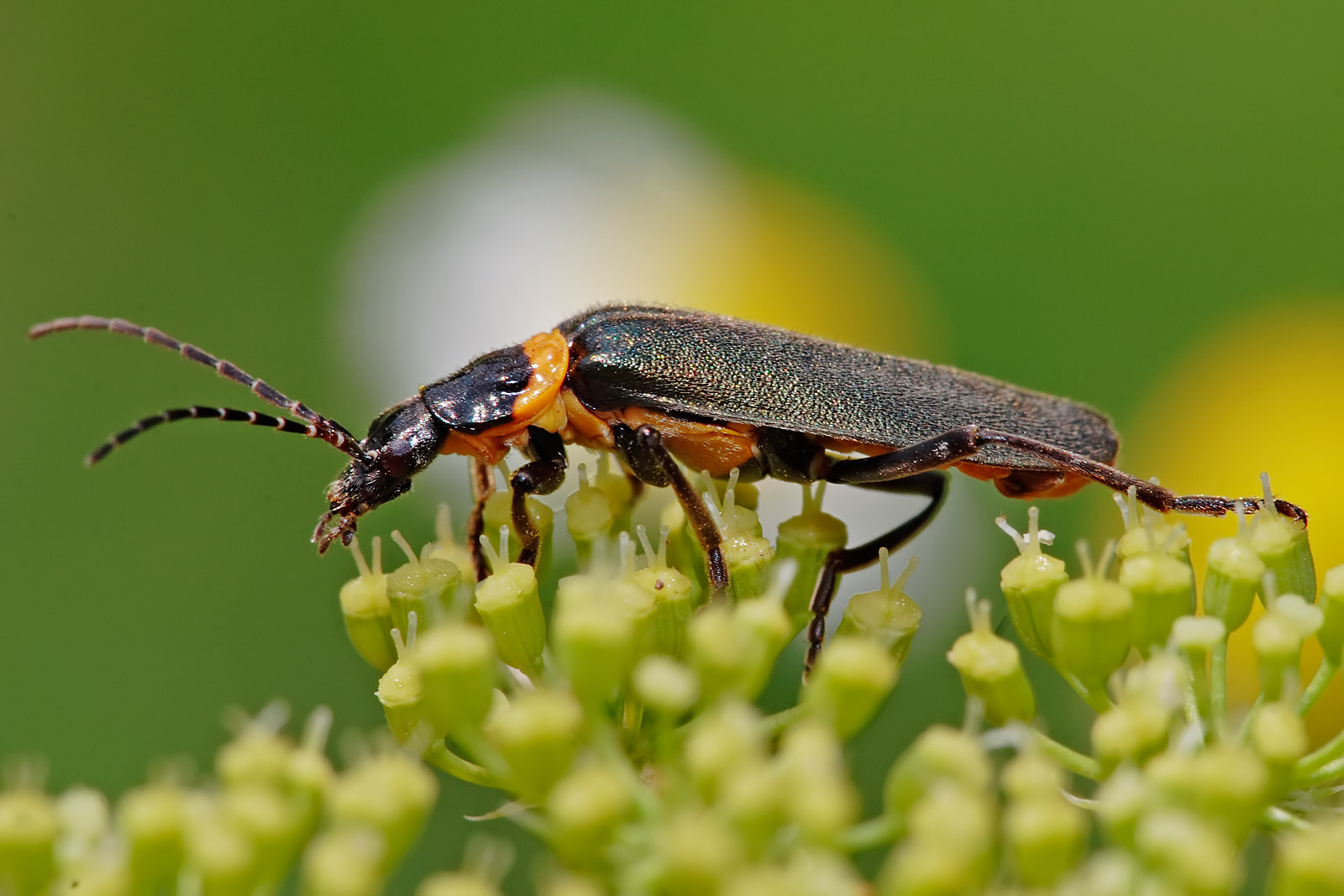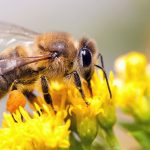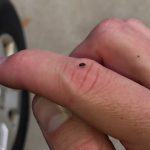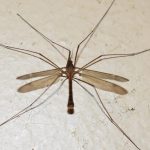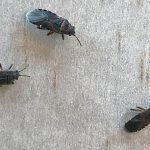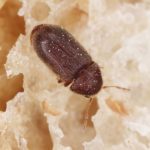Are you tired of soldier beetles invading your garden and damaging your plants? These insects, also known as leather wings, may look harmless with their red and black coloration resembling a soldier’s uniform. However, they can become a nuisance as they feed on flowers and foliage.
Luckily, there are natural and chemical solutions to get rid of these pesky beetles without harming your garden or the environment. In this informative guide, we’ll explore the biology and behavior of soldier beetles to understand what draws them to your garden. Then, we’ll dive into practical methods such as using insecticidal soap, neem oil, vacuuming, and removing breeding sites to control their infestation.
By the end of this blog post, you’ll have all the information and tools necessary to protect your beloved plants from these unwanted guests. So sit back, grab your favorite beverage, and let’s begin our journey towards a beetle-free garden.
What are Soldier Beetles?
Contents
- 1 What are Soldier Beetles?
- 2 How can they become a nuisance?
- 3 Removing Debris and Dead Plant Material
- 4 Reducing Chemical Pesticides and Fertilizers
- 5 Using Sticky Traps to Capture Adult Beetles
- 6 Insecticide Use for Infestations
- 7 Attracting Natural Predators to Control Populations
- 8 Holistic Approach to Pest Management
- 9 Conclusion
Soldier beetles are fascinating insects that can be found in North America and Europe. These creatures, also known as leatherwings, belong to the Cantharidae family and are renowned for their soft, flexible elytra (wing covering). With over 4,000 species worldwide, soldier beetles are a common sight in gardens and homes.
Soldier beetles are often brightly colored, with yellow or red markings on their brown or black bodies. They possess long, thin antennae, and range in size from 0.5 to 1 inch in length. While they might seem similar to fireflies, they do not produce light.
One of the main benefits of soldier beetles is their role in pest control and pollination. They feed on other insects such as aphids and caterpillars while pollinating flowers and feeding on nectar. Their feeding habits make them beneficial to plant pollination and help maintain balance in the ecosystem.
However, when their populations grow too large, soldier beetles can become a nuisance. These insects are attracted to light and can gather around streetlights or porch lights at night. They may even enter homes through cracks and windows, seeking shelter or food. In some cases, soldier beetle infestations can damage crops or garden plants.
To determine if action is necessary to control the population of soldier beetles, it is important to identify infestations early on. Sticky traps can be used to capture adult beetles and prevent them from reproducing and laying eggs in the garden. These traps should be placed near areas where soldier beetles are commonly found, such as around flowering plants or near light sources.
Removing debris or dead plant material from the garden area is also crucial in eliminating hiding places for the beetles and their larvae. Reducing the use of chemical pesticides and fertilizers can help preserve the natural balance of insect populations in the garden while attracting natural predators like birds and praying mantises can also help to keep soldier beetle populations under control.
In some cases, insecticides may be necessary to control soldier beetle infestations. However, it is essential to choose a product that is safe for use around plants, animals, and humans. Insecticides should be applied according to the manufacturer’s instructions and only when necessary.
Overall, a holistic approach to pest management is the best way to get rid of soldier beetles.
How can they become a nuisance?
Soldier beetles are not only beneficial to the ecosystem with their pollination and pest control abilities, but they can also be a source of frustration when their populations get out of hand. In this article, we will dive into how soldier beetles can become a nuisance and what you can do to prevent this from happening.
Soldier beetles are attracted to light, making them frequently found around outdoor lights, which can make it challenging to enjoy your evening outdoors. These beetles can also enter your home through open windows and doors, leading to an infestation inside your house. Their tendency to swarm in large numbers can cause even greater trouble if left unchecked.
In addition to their swarming behavior, soldier beetles feed on other insects, including beneficial insects like bees and butterflies, which can negatively impact the local ecosystem. Their feeding habit may also cause damage to crops in the garden or stored food items in the house. Furthermore, they may cause harm to fabrics like clothing or carpet.
To control soldier beetle infestations, early identification is crucial. Sticky traps, debris removal, natural predators, and safe insecticides are some effective measures that can help preserve the natural balance of insect populations in gardens. By taking these necessary precautions, you can keep these beetles from taking over your home and garden.
Removing Debris and Dead Plant Material
If so, then removing debris and dead plant material is an essential step to keep these pests at bay. Soldier beetles are attracted to areas with decomposing organic matter, such as dead leaves and flowers, and plant debris. By removing this material, you can significantly reduce the number of soldier beetles in your yard or garden.
To get started, grab your rake and start cleaning up your yard. Rake up any leaves or plant debris that has accumulated on the ground. Be sure to dispose of it properly by composting it or placing it in a yard waste bag for disposal. Removing dead plants or flowers from your garden beds is also crucial as soldier beetles are attracted to them.
Maintaining a well-manicured lawn and garden is also vital in controlling soldier beetle populations. Regularly mowing your lawn and trimming back overgrown bushes or plants will not only reduce the amount of debris in your yard but also make it less attractive to soldier beetles.
If you have a vegetable garden, be sure to remove any fallen fruit or vegetables as soldier beetles are attracted to ripe or decaying produce. A clean and tidy garden can help prevent infestations and keep soldier beetles at bay.
In conclusion, removing debris and dead plant material is an essential step in controlling soldier beetle populations. By maintaining a clean and tidy yard or garden, you can reduce the number of soldier beetles and prevent them from becoming a nuisance. So, get your rake and get to work.
Reducing Chemical Pesticides and Fertilizers
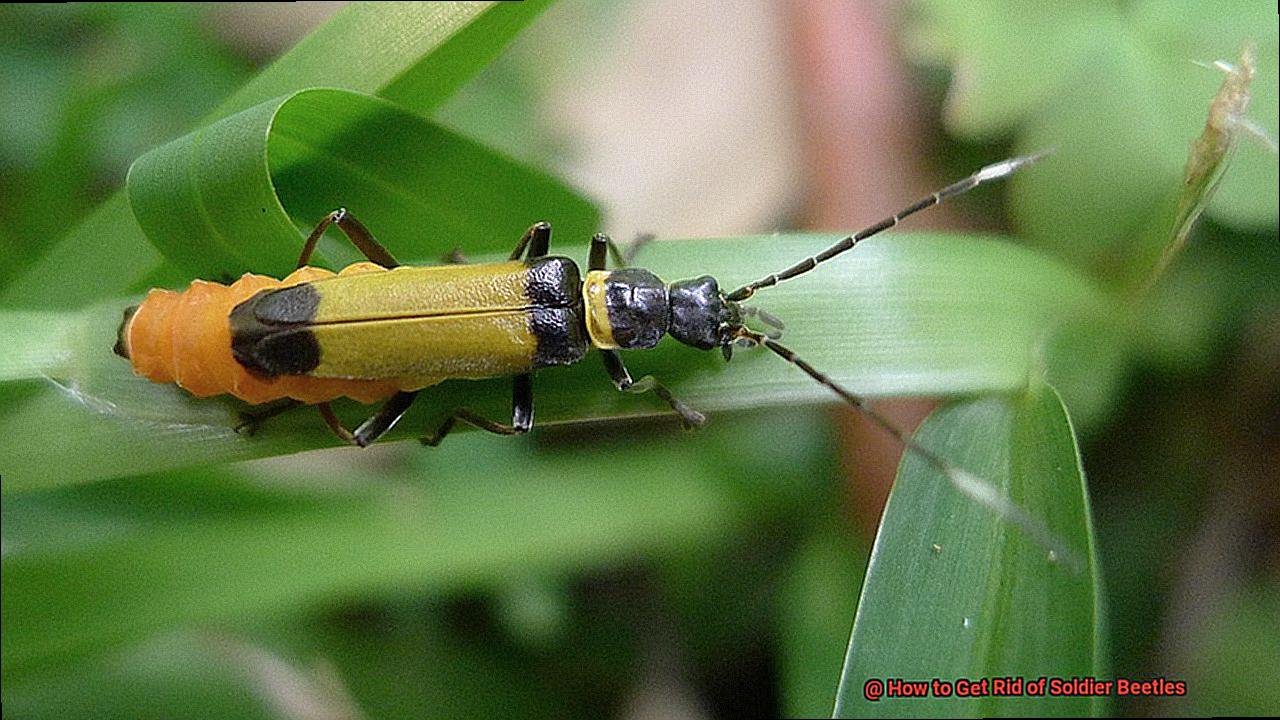
There are safe and effective ways to reduce their numbers without causing harm to your garden or beneficial insects.
One of the most successful methods is to encourage natural predators of soldier beetles in your garden. Insects like parasitic wasps and ground beetles feed on soldier beetle larvae, helping to keep their populations in check. You can attract these predators by planting a diverse range of flowers and herbs, creating hiding spaces like leaf litter and mulch, and avoiding the use of pesticides that harm beneficial insects.
If you’re looking for a hands-on approach, manually removing soldier beetles is another effective strategy. You can handpick them or use a small vacuum to suck them up. However, make sure to dispose of captured beetles away from your garden to prevent them from returning.
Aside from these methods, there are also cultural practices you can adopt to reduce the presence of soldier beetles. Avoid over-fertilization and water your plants deeply and infrequently, making your garden less inviting to these pests. Additionally, removing any dead or decaying plant material from your garden can prevent soldier beetle larvae from feeding on it.
By using these techniques, you can effectively minimize the presence of soldier beetles in your garden while preserving the environment and beneficial insects. Not only will this improve the health of your garden, but it will also ensure that soldier beetles continue to play their vital role in pollination and pest control.
Using Sticky Traps to Capture Adult Beetles
Don’t fret, because the solution to your problem is as simple as using sticky traps. These traps are a highly effective and non-toxic way to capture adult soldier beetles without causing harm to other beneficial insects in your garden.
The key to using sticky traps effectively is selecting the right type of trap for the job. It’s important to choose a trap that is specifically designed for soldier beetles, rather than relying on other types of traps that may not be as effective.
Once you have the appropriate trap, place it strategically in areas where the beetles are most active, like near doors and windows. Be sure to check and replace the traps regularly for optimal performance.
To maximize the effectiveness of the sticky traps, it’s crucial to keep the area around them clean and free of debris. This ensures that nothing obstructs the beetle’s path to the trap, increasing the chances of capturing them.
Whether it’s pheromone-based traps that use scents or light-based traps that utilize visual cues, choose a trap that suits your specific situation best.
Using sticky traps is a safe and efficient way to control adult soldier beetles in your garden. Follow these simple guidelines, and you’ll successfully reduce their populations without harming other beneficial insects.
Insecticide Use for Infestations
While these chemicals can be effective, we must not overlook the potential harm they may cause to humans and pets.
Before applying any insecticide, it’s crucial to identify the specific species of beetle causing the infestation. This helps determine which type of insecticide will work best. It’s equally important to follow the instructions on the label carefully. Improper use of these chemicals can lead to health risks and environmental damage.
Insecticides come in different forms such as sprays, dusts, and baits. Sprays are typically used for outdoor infestations while dusts and baits are more effective indoors. Regardless of the form used, direct application to infested areas such as cracks and crevices in walls or around windows and doors is key.
It’s important to note that insecticides should not be the only method used for eliminating soldier beetles. While they may eliminate adult beetles, they do not necessarily eradicate larvae or eggs that may be present in the area. Addressing underlying issues such as excess moisture or decaying organic matter is also necessary.
Overall, using insecticides can be part of a comprehensive pest management plan for eliminating soldier beetles but always prioritize safety when applying any type of insecticide.
Attracting Natural Predators to Control Populations
The solution to your problem may be as simple as attracting natural predators. By encouraging these helpful creatures to take up residence in your yard, you can effectively control soldier beetle populations without resorting to harmful chemicals.
Birds are one of the most effective natural predators of soldier beetles, particularly bluebirds and chickadees. To lure them to your garden, create a bird-friendly environment by installing birdhouses, bird feeders, and bird baths. These feathered friends will happily feast on the pesky beetles for you.
Praying mantises are another formidable predator of soldier beetles. These insects have insatiable appetites and can consume large quantities of beetles in one sitting. To attract them to your garden, provide a suitable habitat such as tall grasses or shrubs.
Ladybugs are also known to prey on soldier beetles and can be attracted to your garden by planting flowers such as marigolds, daisies, and yarrow. Not only do these flowers provide nectar for ladybugs, but they also entice other beneficial insects that can help keep soldier beetle populations in check.
Spiders may not be as cute and cuddly as birds or ladybugs, but they are just as effective at controlling soldier beetle populations. Encourage them to take up residence in your garden by providing shelter and food sources.
You can achieve this by leaving piles of leaves or grass clippings in a corner of your yard or by planting ground covers that offer spiders a safe haven.
By attracting natural predators like birds, praying mantises, ladybugs, and spiders to your garden, you can create a healthy ecosystem while keeping soldier beetle populations under control. So why not give it a try?
Holistic Approach to Pest Management
Before you resort to harmful chemicals, consider taking a holistic approach to pest management.
A holistic approach doesn’t just address the symptoms, but rather the root causes of the problem. It takes into account the entire ecosystem in which the pest is living, including the physical environment, plant life, and other insects. By doing so, it offers the most effective means of controlling and preventing infestations of soldier beetles.
One important aspect of a holistic approach is maintaining a healthy and diverse ecosystem. By planting a variety of plants that attract beneficial insects such as ladybugs, lacewings, and praying mantises, you can naturally control soldier beetle populations without harming other important insects.
It’s also crucial to identify and address any underlying issues that may be attracting soldier beetles to your property. For example, over-watering or poor drainage can create ideal conditions for soldier beetle larvae to thrive in. By fixing these issues, you can make your property less hospitable to soldier beetles and other pests.
In addition to proactive measures, there are natural and chemical treatments that can be used to control soldier beetle populations. Natural treatments include using insecticidal soaps or oils, diatomaceous earth, or neem oil. Chemical treatments may include using pyrethroids or other synthetic insecticides.
Overall, it’s clear that a holistic approach is the best way to manage pesky soldier beetles. By taking proactive measures to maintain a healthy ecosystem and identifying underlying issues, you can minimize the likelihood of an infestation occurring in the first place. When necessary, natural and chemical treatments can be used in combination with these measures to control pest populations effectively. So why not give it a try?
Conclusion
In conclusion, while soldier beetles are fascinating insects that provide important ecological benefits, they can quickly become a garden nuisance. The good news is that there are natural and chemical solutions available to get rid of these pesky bugs without harming your beloved plants or the environment.
To effectively control soldier beetle populations, it’s important to understand their biology and behavior. Early identification of infestations is key, and practical measures such as using sticky traps, removing debris and dead plant material, reducing chemical pesticides and fertilizers, using insecticides for infestations, and attracting natural predators should be taken.
A holistic approach to pest management is crucial in controlling soldier beetle populations. By maintaining a diverse ecosystem through planting a variety of plants that attract beneficial insects and addressing any underlying issues that may be attracting soldier beetles to your property, you can naturally control their populations without harming other important insects.
It’s essential to prioritize safety when applying any type of insecticide. With these tips in mind, you’ll have all the information and tools necessary to protect your garden from unwanted guests.

